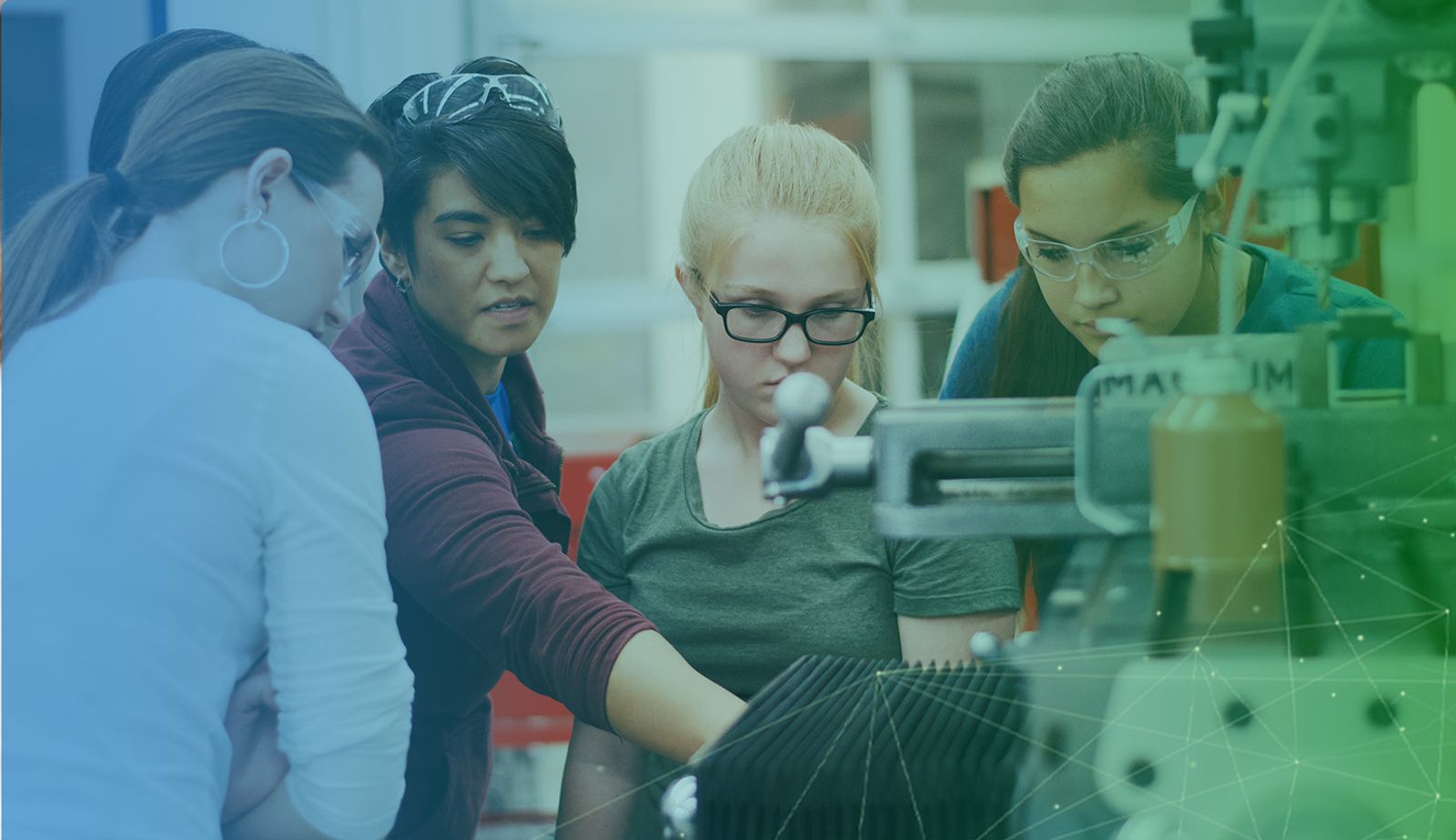
06:05
Today, careers related to STEM (science, technology, engineering, and math) tend to be male-dominated, with only 28% of women making up the workforce in those fields. But many of that 28% and educators around the world are making an impact by taking the lead to inspire the next generation.
Many remember the teacher, coach, or mentor that sparked their interest in engineering, leading them to pursue a career in STEM.
Hear from McKenzie Brunelle, Education Programs Lead at PTC, who recalls when she was a student and the time she became a robotics fan, and how it put her on the path to inspiring more girls to join robotics.
Then Naomi Edwards, Education Curriculum Development Specialist at PTC, shares her story of kindling interest in FIRST Robotics at her school in Washington.
A Mentor’s Impact
Did you know? Participation in a FIRST robotics program leads to girls being 2.6 times more likely to take engineering courses and 3.4 times more likely to take computer science.
This is something that I experienced firsthand when I was a student. I had no idea what engineering was until I joined a robotics team in high school.
McKenzie Brunelle as a student. Courtesy: McKenzie Brunelle
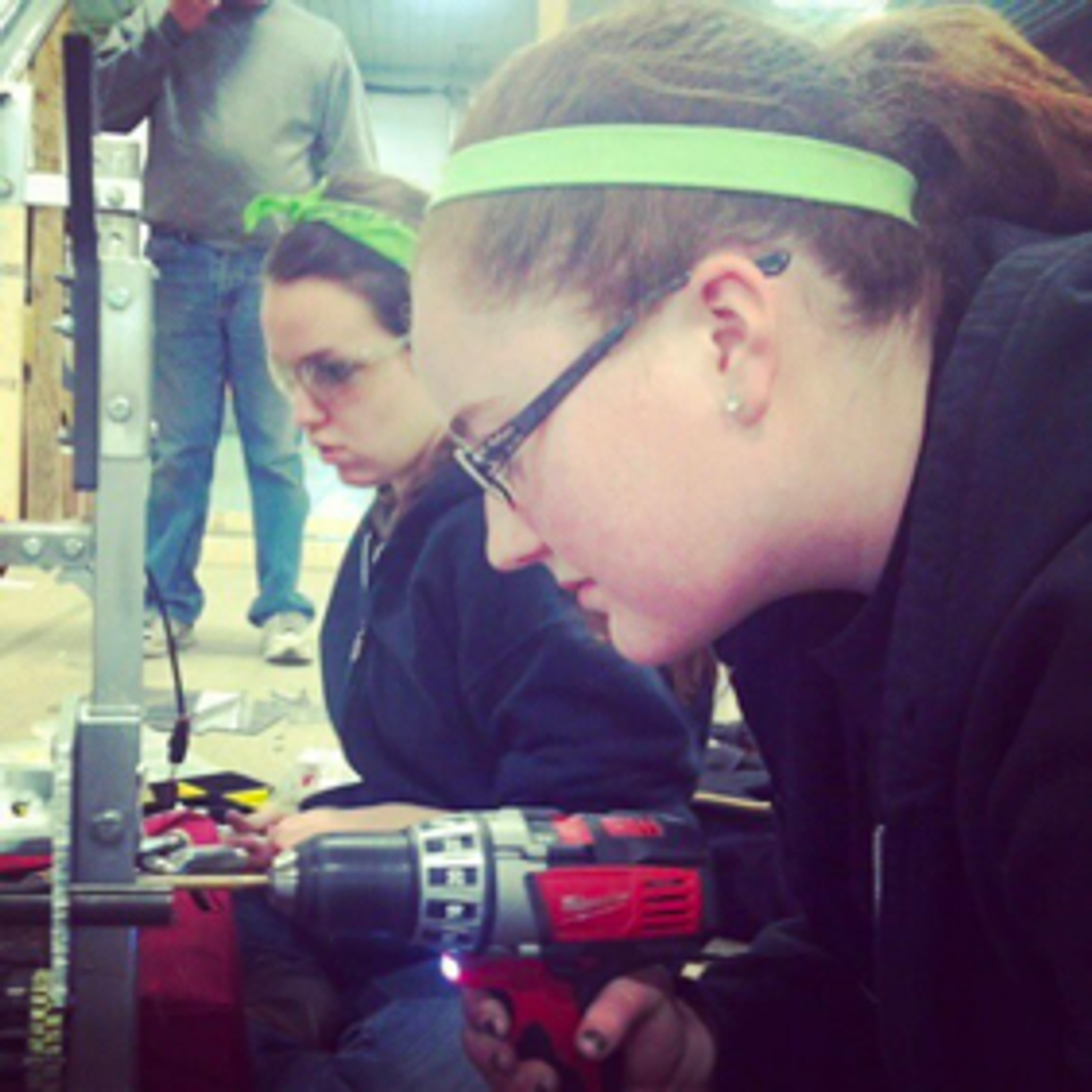
My best friend’s older brother was on the team so she brought me along to an event. We were hooked and decided to join together.
During my time in high school, my coach was my greatest mentor in and out of the lab. She taught me that robotics is about so much more than building a robot and is like running a small business.
She helped me find my voice when working with my peers and presenting to judges at events. She encouraged me to learn more about biomedical engineering after visiting a local hospital and watching a robotic surgery. She helped me with my courses and my college applications.
If I hadn’t had such a strong female mentor I’m not sure whether I would have followed my same path into technology.
Having personally experienced such great mentorship, I have continued to stay involved with FIRST. Initially, I volunteered at events once or twice a year.
McKenzie Brunelle, center, volunteers at a robotics event. Courtesy McKenzie Brunelle
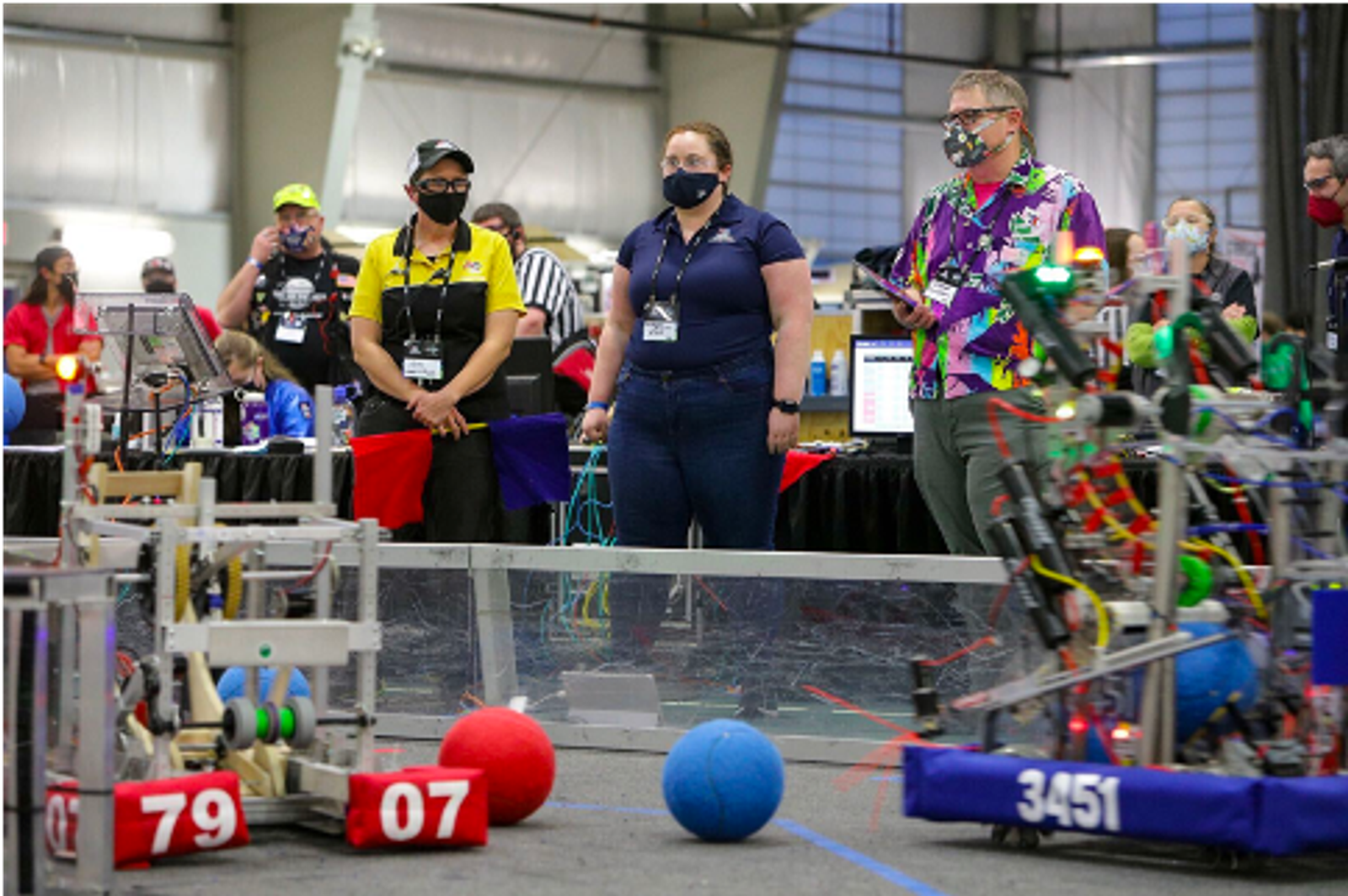
Then, a couple of years ago I connected with a local team. As I started working with them I noticed that the girls on the team tended to sit at the table with me, and would come to me with their questions. Unfortunately, the girls were the minority in the room. But having an adult woman they could go to helped them feel more comfortable and confident.
Sadly, we have seen the number of girls who have returned to our robotics program reduced compared to pre-pandemic levels. While the causes for that aren’t entirely clear, having female mentorship can help girls feel more empowered to get involved in these programs.
I would encourage anyone available to work with girls in similar organizations, and you don’t need to have a technical background to get involved. Beyond supporting mechanical design, I have helped with their marketing, grant writing, and business pitches.
Supporting these girls as they learn and grow is the most rewarding part of my week, and it can be the same for you as well.
Expanding Students’ Horizons
Naomi Edwards teaching a group of students who are interested in learning about the mill and manufacturing. Courtesy: Naomi Edwards
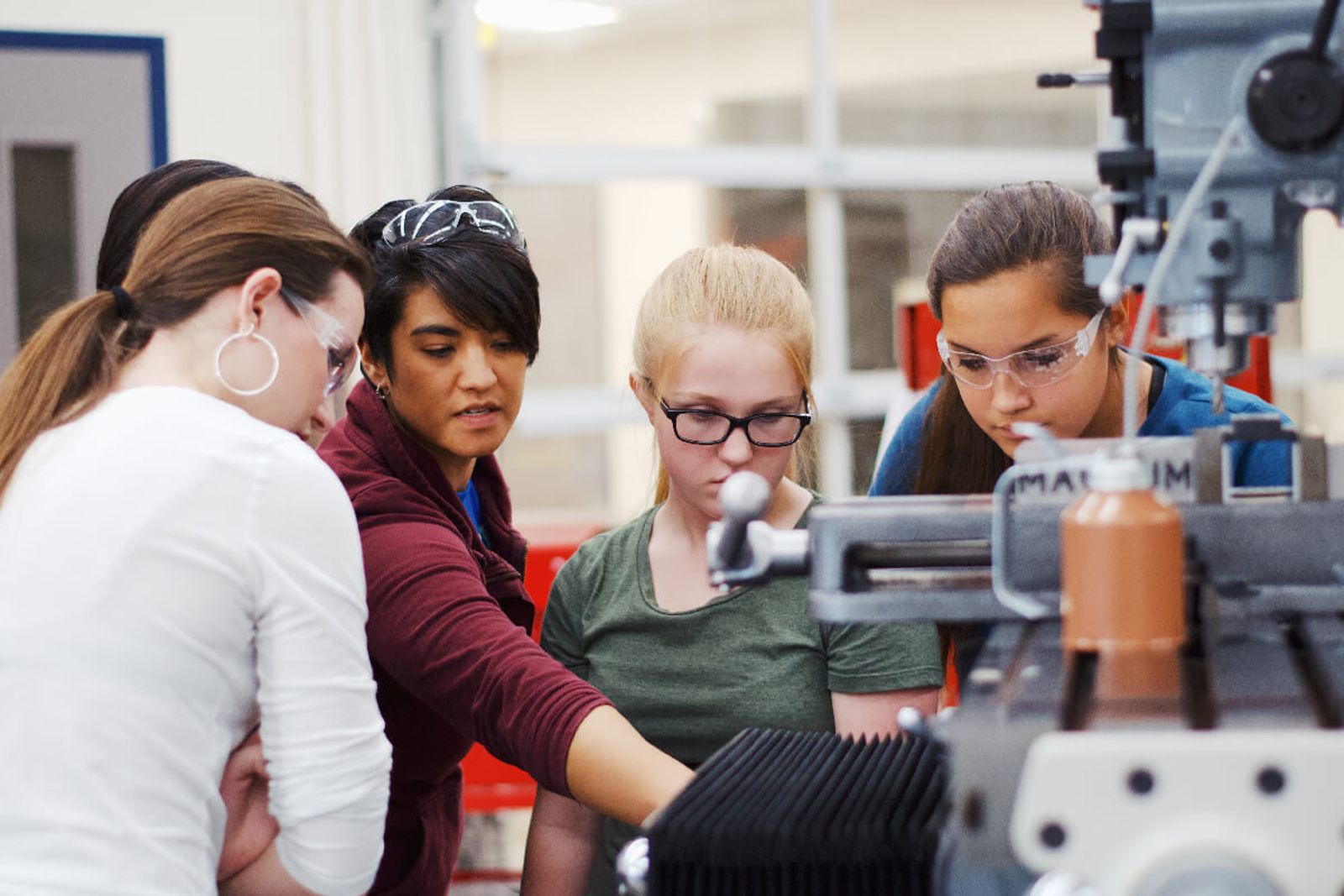
A little over 10 years ago I found myself checking out a robotics competition in the middle of Washington State.
I knew very little about it but was always interested in finding exciting applications for education so I figured I should take a look and see if it would be a good fit for my students. By the end of the competition, I was hooked. Our students needed this.
It was a struggle to come back to our small town and figure out how to create that experience. It was even harder to help the young women in our school feel like they could participate. The truth is, by the time they reach high school, students believe they have established what they are good at, where they belong, and who they are.
We competed for a few years with just two to four girls on a team of about 30 students and they were often only willing to work on team marketing and public relations. I realized that girls were having a hard time seeing themselves doing technical work and didn’t feel they could advocate for other positions on the team.
So, we started a campaign that captured images of the girls on our team doing work typically not female-gendered. We had posters made of our girls soldering electronics, machining on a mill or lathe, programming, or fixing something on the robot. Then, we took those posters and put them up all over our elementary and middle schools.
What happened? We have seen explosive growth in the number of girls on the team. We now have about a 50-50 split of girls to boys and we really believe the images on the posters gave these girls a chance to visualize themselves in important roles.
Whether we like it or not, women daily compete against a wealth of images on magazine covers, social media, mainstream TV, and gendered advertisements. These images are tired and at times ridiculous but, more importantly, they tell a story that just isn’t true. That’s why we need more women mentors.
We need girls (young and old alike) to see women doing tough things in varied specialties, especially male-dominated fields. The posters are just a place to start. Our girls need women to talk to, women to give them advice, and women to cheer them on.
The girls taking charge to make sure the robot is ready for inspection at our FRC event. Courtesy Naomi Edwards
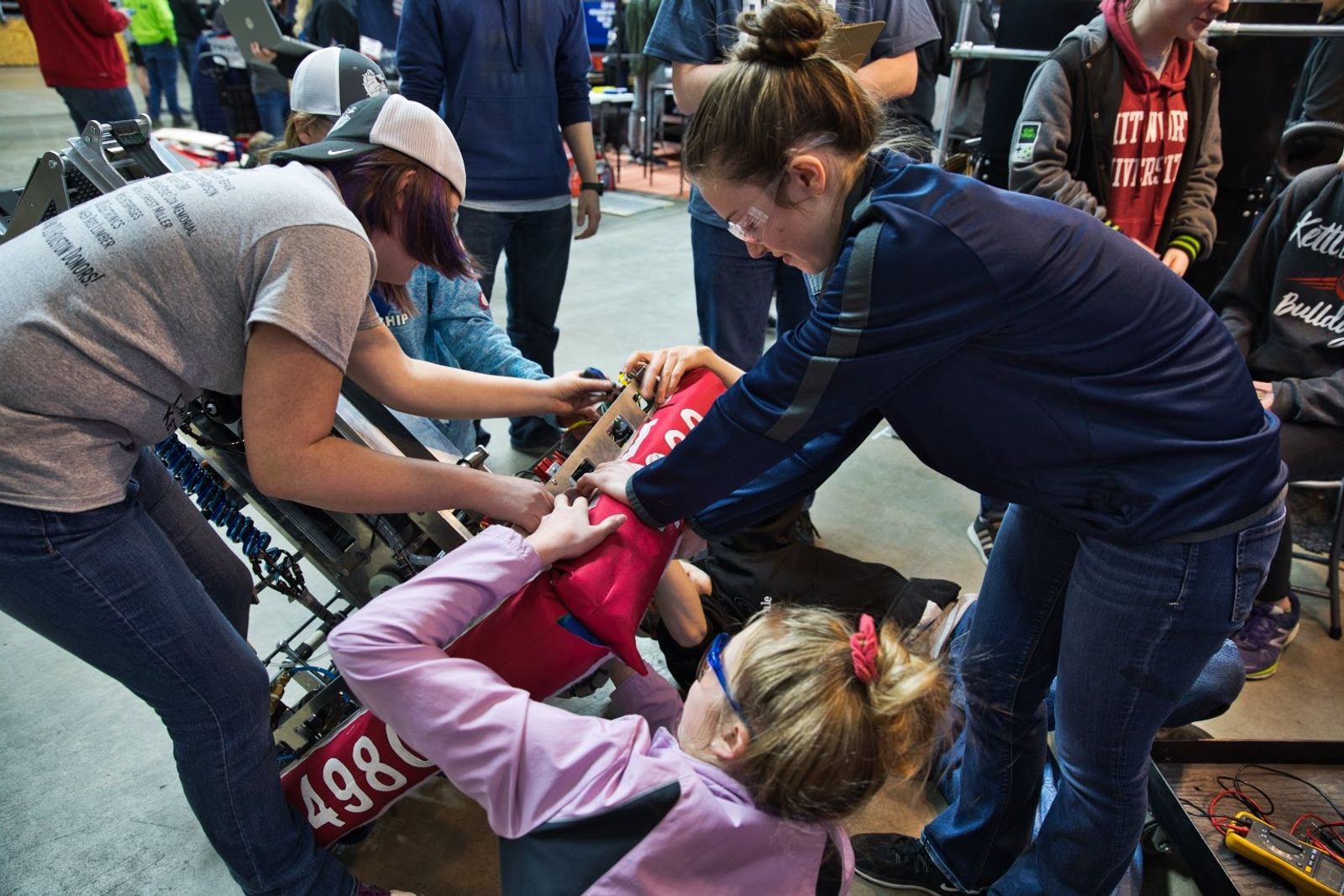
Being a mentor can be intimidating. You may feel like you don’t even know where to start. I understand. But, give it a try. Just show up for a while. Watch for those girls who aren’t sure how to insert themselves between the boys who may be more boisterous or overconfident. Sit with them and listen. Great mentoring doesn’t have a script or a playbook. It’s unplanned, messy, heartbreaking, inimitable, and invaluable for both mentor and mentee. Just have a conversation.
It’s impossible to measure what kind of impact I have as a FIRST robotics mentor and former educator. Your effort will rarely immediately change someone. I have been mentoring and educating for long enough to know that this is a marathon, not a sprint. But maybe 10 years later, you’ll find out that a few words you spoke made a huge difference in someone’s success.
What support, inspiration or encouragement was offered to you? What helped you thrive? Amplify that. It may not appear to be “enough” now, but the next group of women leaders is listening and watching.
Ways and Resources to Get Involved
If you are interested in working with FIRST, you can learn more about getting involved on the FIRST website.
If you are looking to help a team start using CAD, check out these resources.
If you coach a team or teach in the classroom, this robotics curriculum includes models and lessons to help you teach your students about CAD.
Here, at Onshape, we are proud to support students in robotics through our education plans and resources. Part of our drive to support comes from the alums, coaches, and mentors we have working here who understand what an incredible impact this program has on students, especially those who are traditionally underrepresented in STEM.
Get Started with Onshape Education
Onshape for Education brings CAD out of the computer lab and into the modern era.
Latest Content
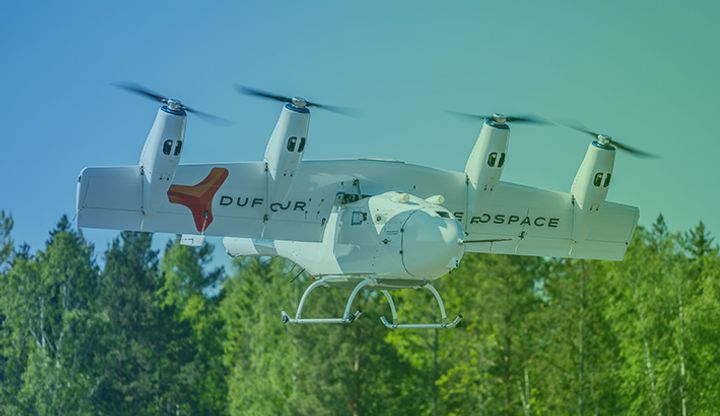
- Case Study
- Aviation, Aerospace & Defense
Dufour Aerospace Accelerates Critical Cargo Drone Delivery with PTC’s Onshape and Arena
02.11.2026 learn more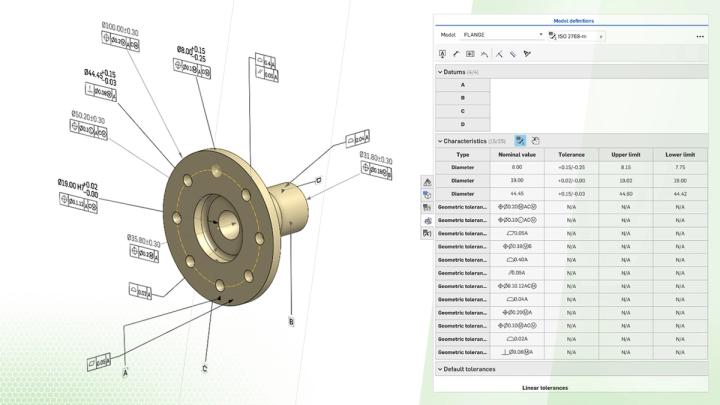
- Blog
- Evaluating Onshape
- Collaboration
How Onshape Fixes the Broken Promise of Model-Based Definition
02.26.2026 learn more
- Blog
- Customers & Case Studies
- Automotive & Transportation
Powering Heavy-Duty Innovation: How Edison Motors Builds Next-Gen Hybrid Trucks with Onshape
02.26.2026 learn more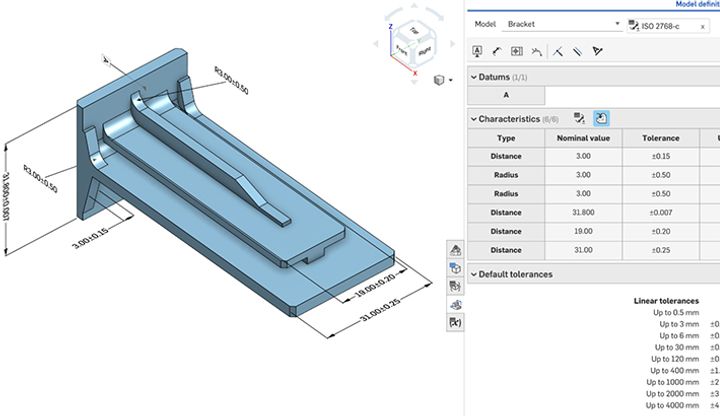
- Blog
- Evaluating Onshape
- Education
- Education & Universities
Future-Proof Engineering Education with Model-Based Definition in Onshape
02.24.2026 learn more



